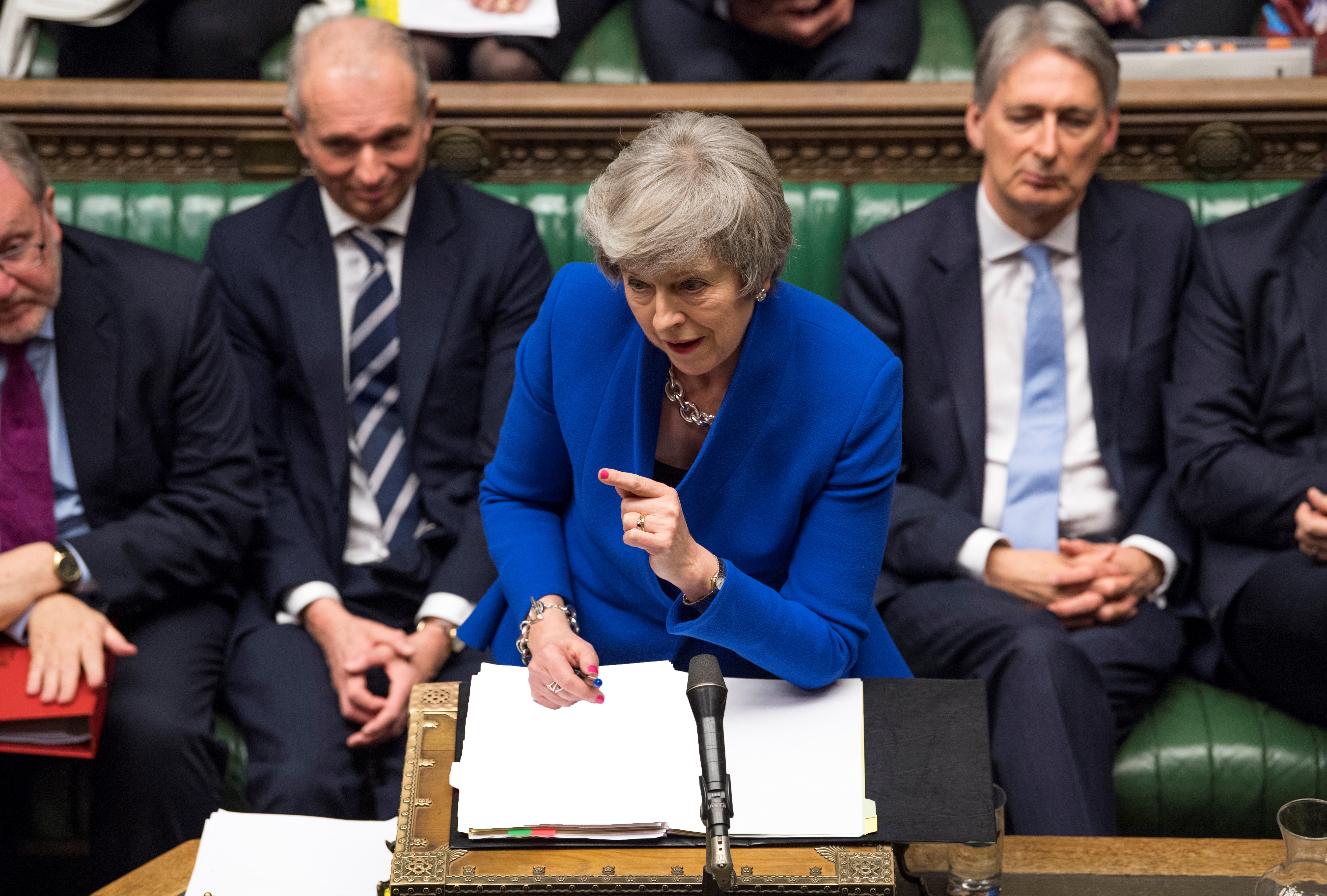UK PM May survives confidence vote after Brexit humiliation
May told parliament an election would be “the worst thing we could do” (Mark DUFFY)
London (AFP) – British Prime Minister Theresa May on Wednesday narrowly survived a no-confidence vote sparked by the crushing defeat of her Brexit deal just weeks before the UK leaves the European Union.
A stunning 24-hour span saw May on Tuesday dealt the heaviest drubbing by parliament in modern British political history — 432 votes to 202 — over the divorce terms she reached with Brussels.
She emerged victorious in parliament’s first no-confidence vote in a British government in 26 years on Wednesday by a 325-306 margin and immediately reached out to opposition parties to hold talks on a new Brexit plan.
“The government approaches these meetings in a constructive spirit and I urge others to do the same.
“But we must find solutions that are negotiable and command sufficient support in this House,” she said.
– Late night talks –
The confidence vote may have only been a pyrrhic victory for the hobbled but determined premier as she tries to steer the world’s fifth-biggest economy through its biggest crisis in a generation.
The opposition Labour Party could try to oust her government again in the hope of triggering snap elections before Britain’s scheduled March 29 Brexit date.
And May herself is working on the tightest-possible deadline as Britain prepares to leave the bloc that for half a century defined its economic and political relations with the rest of the world.
She has promised to return to parliament on Monday with an alternative Brexit strategy devised through cross-party talks with the opposition.
May invited party leaders for individual meetings starting on Wednesday evening.
But Labour leader Jeremy Corbyn said he would only meet May if she could “remove — clearly, once and for all — the prospect of the catastrophe of a no-deal Brexit”.
There is now an assumption among many European diplomats that this can only be done through a Brexit postponement.
– Divorce delay? –
May survived Wednesday thanks to the support of members of her Conservative Party and ruling coalition Northern Irish allies in the Democratic Union Party.
But more than a third of the Conservatives and all 10 DUP members of parliament voted against her Brexit arrangements on Tuesday — each for their own reason.
May will thus tread carefully as she tries to win over opposition lawmakers — many of whom want to remain in the European Union — while also attempting to appease more hardened Brexit-backing coalition partners.
She stuck to two key principles on Wednesday: limiting EU migration and pursuing an independent trade policy.
Both points rule out Labour hopes of membership of an EU customs union or its single market.
Yet May also hinted at the possibility of delaying Brexit.
May said the EU would allow this “if it was clear that there was a plan towards moving towards an agreed deal”.
All 27 EU leaders would have to sign off a Brexit date deferral in case May requests one — something she has until now refused to do.
EU officials have said extending the negotiating period could be possible until the newly-elected European Parliament meets in July.
– Blurred lines –
EU leaders have repeatedly said they will not reopen the draft withdrawal agreement sealed at a special Brussels summit in December.
French President Emmanuel Macron suggested after May’s fiasco on Tuesday that the EU might be willing to tweak a few minor points — but only if they did not alter the bloc’s existing position on trade and borders.
“Maybe we’ll make improvements on one or two things, but I don’t really think so because we’ve reached the maximum of what we could do with the deal,” the French leader said.
“We won’t, just to solve Britain’s domestic political issues, stop defending European interests.”
German Chancellor Angela Merkel said there was time for talks as long as the London could present a clear and united position.
“We’re now waiting on what the prime minister proposes,” Merkel said.
And Irish Prime Leo Varadkar added “that if the United Kingdom were to evolve from its red lines on the customs union and on the single market, that the European Union could evolve also.”
Disclaimer: This story is published from a syndicated feed. Siliconeer does not assume any liability for the above story. Validity of the above story is for 7 Days from original date of publishing. Content copyright AFP.


